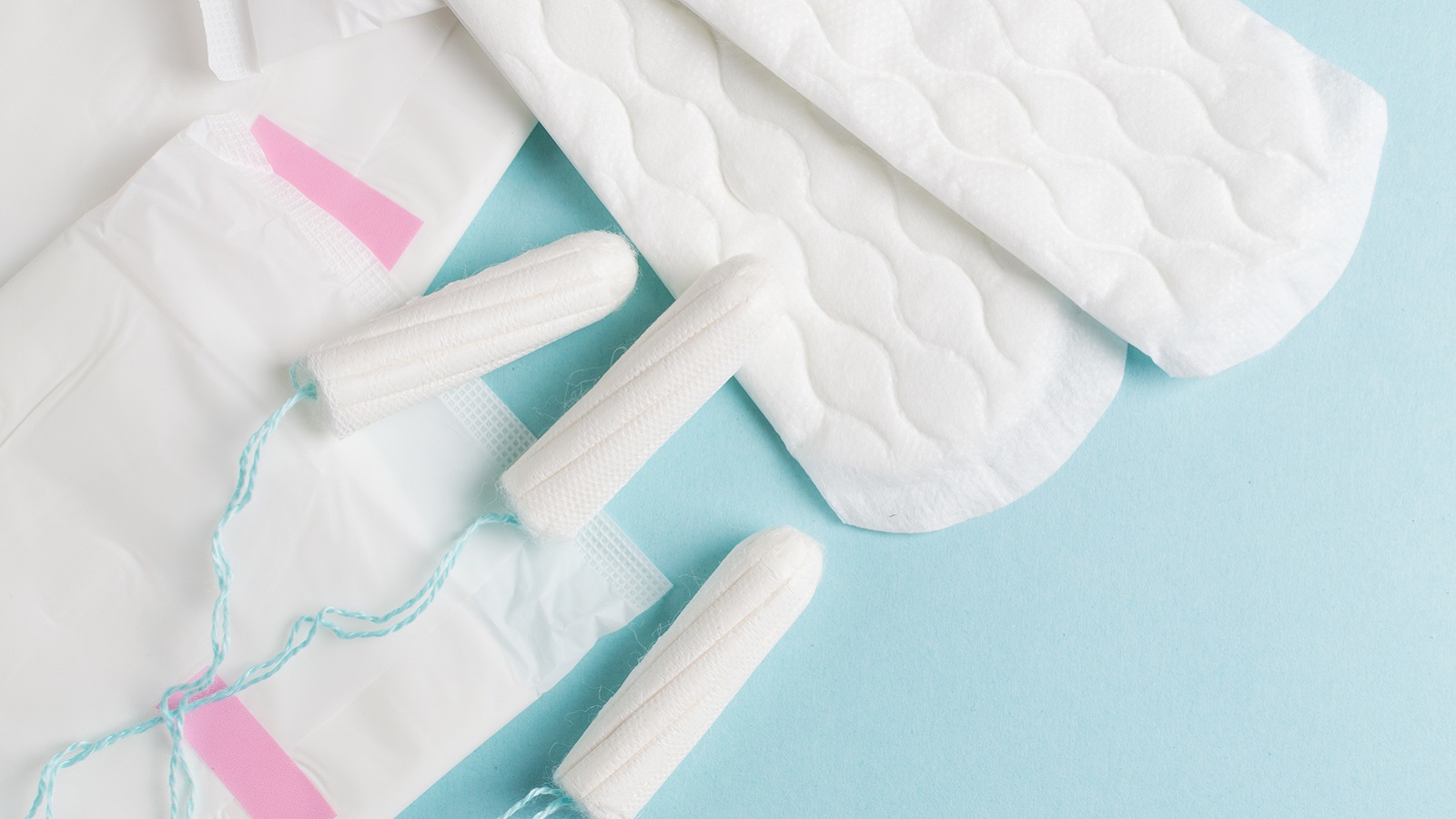Globally, over 800 million women, girls, and gender non-binary persons are menstruating while simultaneously coping with the COVID-19 pandemic. For many, the ability to safely manage their menstrual health and hygiene remains a widely unmet need, in part because discussion of menstruation is often considered taboo.
Menstrual hygiene management can be overwhelming, especially in lesser-resourced countries, internally displaced camps, as well as for refugees or persons who are disabled. For instance, those who have been displaced due to natural disasters or conflict often live in crowded conditions and in close proximity to men, which often fails to afford the privacy and sanitary facilities necessary to safely address menstrual hygiene needs.
Water, sanitation, and hygiene (WASH) plays a vital role in menstrual hygiene management and can either help or hinder peoples’ healthy and dignified management of their periods. However, in many settings around the world, the difficulties of managing menstrual hygiene while simultaneously grappling with a continued lack of access to WASH resources remains an everyday struggle. It is estimated that roughly 2.2 billion people lack access to safely managed drinking water services, and 4.2 billion people lack safely managed sanitation services. Too often these basic resources are not easily accessible for those who menstruate, particularly women and girls.
The impact of COVID-19 on menstrual hygiene management
While the primary impacts of the pandemic on menstrual hygiene management are not yet fully known, the morbidity and stress from contracting or caring for those with COVID-19 can impact menstruation and one’s ability to safely manage it.
The increased demand for limited WASH resources, particularly in water scarce areas puts further constraints on menstrual hygiene management. Approximately one-third of the global population lives in water-stressed areas where water is frequently rationed. This rationing fosters tension between competing needs: using water to combat the spread of COVID-19 or using water to support menstruators’ needs. More often than not, menstrual hygiene management needs become secondary.
The impacts of COVID-19 have reinforced the challenges associated with menstruation, as crucial WASH resources are diverted to cope with the pandemic, further intensifying existing inequalities for women, girls, and others who menstruate. Failing to adequately and respectfully address menstrual hygiene needs can compromise menstruators’ physical and mental health, and limit their social and economic development opportunities.
Reports of misinformation, including the false belief that menstruation is linked to an increased risk of COVID-19, can compound discriminatory practices towards menstruating persons. This stigma may be even greater for those who are already marginalized because of race, religion, gender identity, social class, or disability status.
The COVID-19 pandemic has exacerbated many of the barriers related to menstrual hygiene management, as the strategies used to control the pandemic have instead hampered access to safe menstrual hygiene resources.
Lockdowns have forced the closures of communal centers, such as schools and health centers, resulting in a lack of access to both necessary menstrual hygiene information and supplies. Restrictions around freedom of movement and mandatory quarantining have forced many to remain at home where they are often unable to access sufficient sanitary supplies. Reports suggest that some menstruators have utilized household goods, like blankets, to make sanitary products when they are unable to access supplies outside the home. This practice however, has been associated with increased domestic violence as it is viewed, not as a creative solution, but rather as a destructive act. The taboo nature of menstruation frequently forces women and girls to wait until late at night to visit the latrine. This elevates their risk of not only experiencing violence but also contracting infections as a result of delays in changing their sanitary pads.
COVID-19 has compounded menstrual hygiene inequities due to border closures, panic buying, and stock outs that have severely and significantly impacted the sanitary napkin supply chain. A May 2020 survey of Plan International professionals found that 81% of respondents were concerned that menstruators’ hygiene needs would not be supported due to the pandemic.
As the markets for both buyers and sellers have been constrained, there is a growing concern that prices of menstrual hygiene supplies will become overinflated and prohibitive. Increased financial strain disproportionately impacts women and girls, who frequently are not in control of household finances. The repercussions of this on safe menstrual hygiene management can be drastic, with food or utilities prioritized over purchasing menstrual hygiene materials, an acute issue for those who use disposable materials each month. Without easy access to sanitary supplies, women and girls may be forced to trade sex for supplies, or for the money to buy supplies.
The use of cloths or other reusable menstrual hygiene products requires access to clean water, soap, and private, hygienic spaces for drying. Yet too often, these basic resources are not easily accessible. Menstrual hygiene management also necessitates access to soap and water to sufficiently clean oneself; without this access, an individual’s risk of infection, as well as their shame, increases.
At least 500 million women and girls worldwide do not have sufficient, available facilities for their menstrual hygiene management. In 2016, approximately 335 million girls went to primary and secondary schools where they did not have water and soap to wash their hands, bodies, and/or clothes when changing their sanitary pads. Individuals with disabilities may further struggle with menstrual hygiene management due to mobility challenges, inaccessible facilities, and/or a limited capacity to manage their periods independently.
Safe and reliable WASH infrastructure is a cornerstone of public health policy, and while it can temper the effects of the COVID-19 pandemic, it must also be properly maintained. When a community’s waste management system is unable to manage sanitary products effectively, the end result is contamination of both groundwater and the surrounding environment. A poor sanitation system, coupled with unsafe water from a breakdown in infrastructure, can jeopardize the health of women, girls, and others who menstruate; it has the potential to foster further disease outbreaks. Yet access to sufficient, reliable means of disposal for sanitary products remains an ongoing problem in many communities.
The way forward
COVID-19 has exposed the lack of comprehensive, standardized menstrual hygiene management policies globally. In order to rectify these shortcomings, a bold and systematic approach, rooted in water, sanitation, and hygiene, is essential.
Menstrual hygiene management protocols must be woven into the fabric of any pandemic response, ensuring that sanitary products are readily available to all who need them. Local supply chains should be cultivated to support the needs of their communities, limiting the impact of inflated, pandemic prices resulting from global shortages. Additionally, prioritizing the right to menstrual supplies during the COVID-19 pandemic is vital in communities where the health needs of those who menstruate may be undervalued.
When resources are diverted toward pandemic-related hygiene supplies, the consequences for menstruators can be grave, exposing them to sexual exploitation, impacting their physical and mental health, and limiting economic opportunities. WASH campaigns have the power to improve gender equality by reducing the precarious conditions and stigma experienced by people who menstruate during pandemics.
It is critical that funding and infrastructure for menstrual hygiene management no longer takes a backseat during the global pandemic. It’s imperative that the WASH response to COVID-19 elevate and advance menstrual hygiene management to ensure that policies and protocols promote both gender equality and human rights.
Acknowledgment: This blog was developed from the Gender, COVID-19, and Menstrual Hygiene Management Impact Note released by the WASH Subgroup of the Gender and COVID-19 Working Group, an international, collaborative research and advocacy group dedicated to elevating the conversation on the need for a gendered approach to the COVID-19 response by producing and disseminating rigorous gender research and evidence-based policymaking. The authors would like to thank Dr. Carmen Logie for her contributions to the development of the aforementioned Impact Note as well as this blog post.
**Feature photo obtained with standard license on Shutterstock.
Interested in other articles like this? Subscribe to our bi-weekly newsletter
Interested in contributing to the Harvard Primary Care Blog? Review our submission guidelines

Rachel Fisher Ingraham, MSW, MPH, is an international gender consultant based in Denver, Colorado. Her work focuses on gender-based violence and the intersection between gender, public health, and social work. She has worked across the United States and Southeast Asia and co-leads the WASH subgroup of the Gender & COVID-19 Working Group.
 Bonita B. Sharma, PhD, MSSW, is an Assistant Professor at the Department of Social Work in the College for Health, Community and Policy, University of Texas at San Antonio (UTSA). Her research focuses on using the feminist lens to address socioeconomic and environmental issues related to women’s health and wellbeing. Dr. Sharma also looks at natural and built environment impacts on vulnerable groups from the sustainability and resilience perspective.
Bonita B. Sharma, PhD, MSSW, is an Assistant Professor at the Department of Social Work in the College for Health, Community and Policy, University of Texas at San Antonio (UTSA). Her research focuses on using the feminist lens to address socioeconomic and environmental issues related to women’s health and wellbeing. Dr. Sharma also looks at natural and built environment impacts on vulnerable groups from the sustainability and resilience perspective.
 Karen Joe, MPH, is a Knowledge and Research Advisor at the Centre for Affordable Water and Sanitation Technology based in Calgary, Canada. She is an experienced evaluator and has worked across Sub-Saharan Africa and the South Pacific regions implementing global health and development programs. She co-leads the WASH subgroup of the Gender & COVID-19 Working Group.
Karen Joe, MPH, is a Knowledge and Research Advisor at the Centre for Affordable Water and Sanitation Technology based in Calgary, Canada. She is an experienced evaluator and has worked across Sub-Saharan Africa and the South Pacific regions implementing global health and development programs. She co-leads the WASH subgroup of the Gender & COVID-19 Working Group.
- Share
-
Permalink


